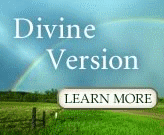|
Getting It.
A letter from Gregg
Zegarelli to his children.
My Dear Children:
It may be a colloquialism
that we say, "that a person 'gets it'" meaning,
generally, that the person understands how to live life
well. But, however said, at any time, or in any
location, it is of great value to think about the
qualities in a person that underlie living life well.
The premise, of course,
presupposes that some lives are lived better than
others, since living a life well necessarily implies
that a life may not be lived well. And, since no
life may be lived twice, there can never be an absolute
comparison between or among the implementation of
unlimited choices in any single life at any given time.
Nevertheless, it seems possible to identify the common
qualities of different persons who all appear to live
well, to the extent that such qualities can be observed.
At the onset, it should be
importantly noted, that knowing how to live life well
has no relationship to social status, money, employment
or any other possessory interest. It is far deeper
than any of those. An old mid-west farmhand and a
wealthy corporate executive, with such different lives,
can equally live life well, as can, as Aesop would say,
a city mouse and a country mouse.
At its most fundamental
generality, living life well appears to be a peace with
existence. It seems to be a detachable
independence, with, at that same time, complete
dependant integration. Irrespective of any one
particular life, it can never be true that a person
lives well if that person complains, is hurtful, jealous
or mean; certainly so, for such qualities in a person
are indicative of the struggle, unhappiness or
frustration that can never be part of living well and
are, in fact, its antithesis.
It is, furthermore,
important not to become discouraged (if that is not
ironic) in learning to live well. It is usually, I
think, something to be learned. Like most things,
it may come naturally to the very few, and it may be
inaccessible to others. But, for most, with some
attention over time, such as a subtle wisdom is
achieved, learning to live life well also can be
achieved.
It may take a lifetime to
learn to live well.
And, so, simply stated,
following are the qualities that I believe are common in
persons who live well, and who understand how to live
life well. They are, as fundamental in nature,
necessarily simple qualities:
1. Work hard.
Be diligent. Working
hard means performing your obligations and being
diligent in your purpose. If you cannot find
contentment in your work, then you are in the wrong
work. Everyone I have ever known who lives well
loves their profession, and so they work hard by
passionate compulsion.
Nothing great has ever been
accomplished that was not the result of uncompromising
passion.
It is an important point
that you should strive to find a profession that will
allow you to fulfill your purpose. And, it is your
passion for your purpose that will slice through the
inertias of daily life. The passion of an artist
provides no choice. Remember that contentment is
something subtlety different than happiness, for persons
of great responsibility may or may not be lightly happy
in work, but will find deeper contentment in the
fulfillment of a greater purpose.
Even if your purpose is to
watch beautiful sunsets, it will not be an easy task if
you should desire to be your best in doing so.
2. Play hard.
Enjoy life. This is,
of course, part of working hard, if you love your
profession. But, it means knowing how to have fun.
It means feeling as good in a suit or a beautiful dress
as in jeans. It means not taking yourself, or
others, too seriously. As Jesus said, "Solomon in
all his splendor was not clothed so well as one little
flower." The things from which you take enjoyment
do not need to be expensive or complicated. There
is nothing more simple in life than a sweet kiss or a
giggle.
3. Love others.
Do your best to love
everyone. This means being unselfish. By
definition, you cannot love and be selfish. Love
is selfless. As a human being, our most basic
nature is to survive, and that is, if anything, selfish.
Certainly, in that regard, it is natural to be selfish.
But, in that regard, it is also base and the condition
of animals. It is by love that we transcend
ourselves. To give your life for others is
certainly the highest form of love, to give your
possessions less so. The Stoics teach that there
is nothing you own, only things are borrowed, including
your life. There is nothing more wise that this
statement. Therefore, you should understand that
you will have to return everything you have or will
every have. Understanding this fundamental point
is where understanding of love begins.
Perfect love is tantamount
to martyrdom, which is, I suppose, a different type of
fulfillment. Although we are guided by the star of
perfect love, living well does not require perfection—it
is enough, I think, for you to be guided by the star
without necessarily having to touch it.
4.
Respect life, and the rules
of nature.
It is the state of nature,
neither good or bad, right or wrong, that a lion will
eat an antelope. A bear will eat a fish. You
will accidentally step on many ants. It just is.
It has been. It will be.
There are very few things
that are generally good or bad except as we make them
so. But, it seems bad to kill anything alive, not
from necessity, but for pleasure or sport.
There is a subtle meanness in killing for sport; or,
possibly, not so subtle, just ubiquitously overlooked.
As Abraham Lincoln said, "it may be just an ant's life
to you, but, I suppose, for the ant, it is a rather
important thing."
But, please do not
misunderstand this point. Cats will chase mice.
Two rams will butt heads. Birds will eat worms—as
they sing. There will be war. It is the way
it is. It has been. It will be.
Society may advance, but never human nature. Do
not try to contradict nature. It is folly, and an
inherently frustrated purpose, to try to re-invent the
fundamental way of things. Not all mountains can
be tunneled, but they all can be crossed. The important
point is that, whether by prayer or other appreciation,
you recognize and understand the cycle of life from
which we all will take, and to which we will all give.
But, if you ever laugh at
nature when you take life from her, I assure you that
she will laugh when she takes life from you.
5.
Help others, whenever you
can.
Where love exists, helping
others is a natural incident. But, you can still
help others out of discipline, even if you do not love
them. It is rightful that you should use your
strengths to help the weak and vulnerable. I have
tried to reconcile living well with the probable
inability to purely love everyone with an appropriate
real-world unselfishness. Here is the best I could
do:
Consumption without limitation is gluttony.
Production without consumption is drudgery.
Neither extreme could be intended.
It seems rightful to produce all that you can without
drudgery.
And to consume all that you can enjoy without gluttony.
But, in all cases, to do your best to consume less than
you produce,
and to contribute the remainder
to those that are unable to produce what they need to
consume.
People that live well are
generous.
6.
Understand that, for better
or worse, life will end.
Space without boundaries is
a meaningless void. There is no circle without the
encompassing line. Life is the inside of a circle,
and death the encompassing line. It is death that
defines our life. Without death, there is no
life—or it has no meaningful definition. Death
gives time its importance.
Remember that, with every
laugh with your friends, you will likely be at their
funeral or they will be at yours. This point
should not be depressing, but it should be deepening.
It is the way of things. Napoleon said, "space can
be recovered, never time." And, so it is that each
moment is precious. There is nothing more
important that I have ever done than, as my father did,
each day telling you and your mother that I love you
with a kiss. For I recognize that, one of those
days, it will be the last time.
I love you,
Your Father
|








